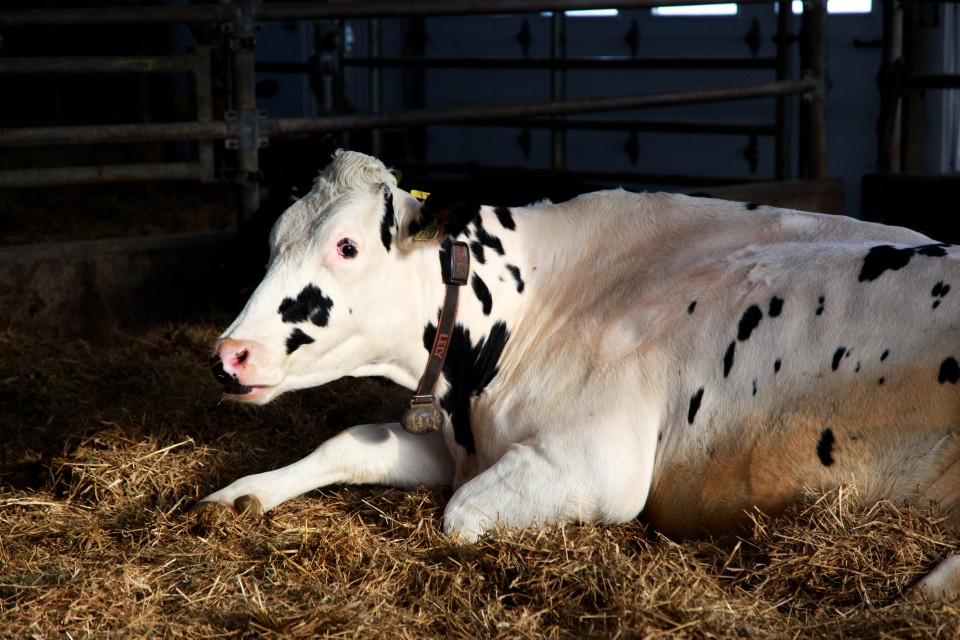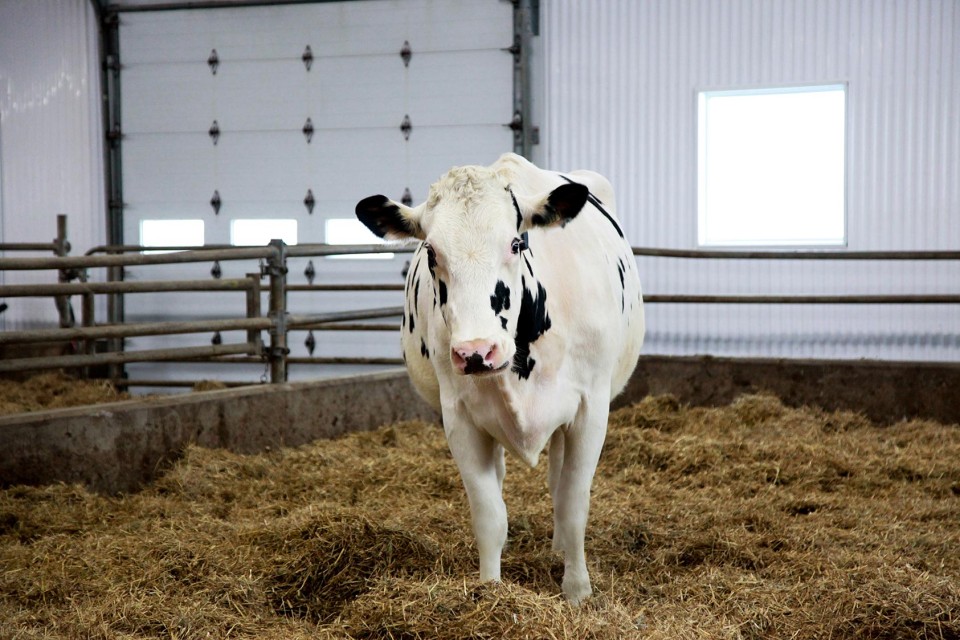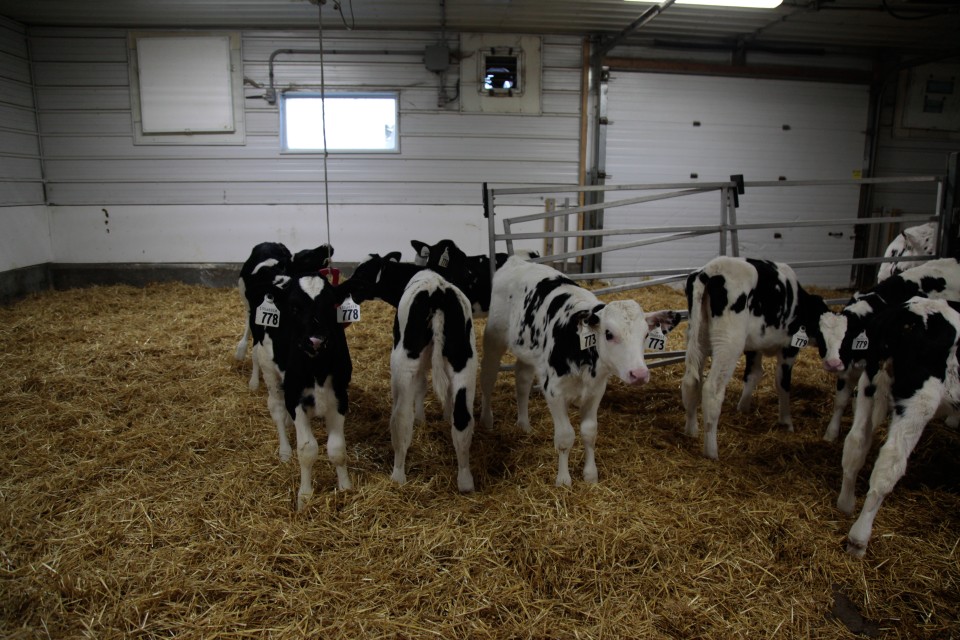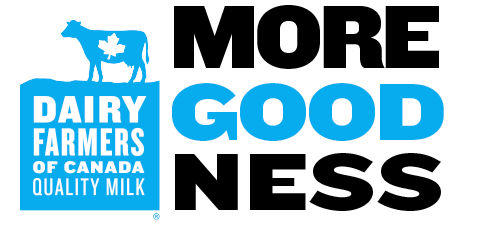Highlights
- Many farmers say their cows are the best part of their day
- Canadian dairy farmers become cow “experts”
- Many Canadian dairy farmers are able to tell their cows apart, and recognize how they’re doing on any given day
- Cows have distinctive personalities
“I’ve been involved on the family farm from the day I was born. Back in the days, Mom would push us around in the stroller as we were milking cows,” says Jacob, a dairy farmer from Manitoba. That might explain why dairy farming feels so second nature to many farmers. But even those who weren’t born into it seem to be charmed by their dairy queens. We looked for the reasons why.

Speaking “cow”
In some ways, to be a farmer is to become an expert in cow behaviour. For most people, cows might look in the zone, just chilling and chewing, but a dairy farmer who interacts with a specific herd of cows on a daily basis will be able to pick up on cues that others might not.
“They actually do communicate fairly well – how they’re feeling, how they’re doing. They definitely show a lot of signs,” says Jeremy, a farmer from Manitoba.“If you’re intuitive to it, you can definitely pick up a lot from a cow. It’s very easy to see their personalities, how they’re doing, if they’re happy.” To check up on his cows, Jeremy makes sure to see every single cow in his barn at least twice a day.
Michelle, who farms in Manitoba, explains “You can tell sometimes by the look in their eyes that they might not be feeling well or by the way they’re moving around.” A farmer knows which cows are sprightlier and which ones are more laid back.
There are of course technologies such as pedometers and the robotic milking machines that help collect data on every cow to help inform farmers whether a cow is being her usual old self or not, but it takes an attentive farmer to make the call and provide the right care when a cow needs it.

A barnful of personalities
Each cow has its own character. There are dominant “boss” cows while others are more docile, like in any animal species explains Marie-Claude, a dairy farmer from Quebec. “You might spot a cow pushing another out of the way to get milked by the robot or to take her spot at the water trough, but you might also notice cows who always lay next to each other or wash each other,” she says. That’s right, there are besties in the barn.
Cows’ personalities also come through when they interact with people. Richard, who is Marie-Claude’s husband and partner, says “Some have very warm personalities. We have one cow who just as soon as you approach her, she’ll get up and come to get petted. Others are like ‘Just let me do my own thing’ and that’s ok. We learn to work with each and every one of them.”

Cows will surprise you
They’re smart animals,” adds Richard, a dairy farmer from Manitoba. “When they’ve opened a gate that they shouldn’t have Cows will surprise you opened and have left the pasture, you kind of wish they weren’t that smart, but they’re the right amount of smart,” he adds laughing.
Cows can also be curious creatures. Come close and they’ll stick out their tongue to check you out. “That is just a sensitive area for them. As a human, we can reach out our hands and touch things – they use their nose, just like a dog almost, to reach out and smell and touch everything,” says Jacob. That big tongue of theirs is like slobbery sandpaper.
Above all, cows are creatures of habit. They’re most comfortable and produce more milk when things are calm and stable, and when their routine is respected. Instinctively, cows are flighty because their wild ancestors were prey. But in a comfortable barn, they relax and thrive.
The herd life, it’s a lifestyle
There’s no denying that taking care of cows and calves is hard work. “At any hour of the day or night, if they need you, you need to go and take care of the cows. When you have a farm, you make yourself available for your cows at all times,” explains Richard from Quebec. It’s just what comes with the territory when you work with animals. It’s a way of life.
For Marie-Claude, a former hairdresser turned dairy farmer, making the transition was about finding a better balance. “I found that when I came to work with my husband, it was easier to be together, with the kids, living at the farm. I love it too – being with the animals, here. It’s zen.” Today, their kids have a little sand pit and toys in the barn close to the cows, where she and Richard can keep an eye on them while tending to the cows. You could say that the barn is where is where it all comes together.
This meeting of work and family life isn’t unusual for Canadian dairy farmers. When asked about the most rewarding part of her work, Michelle said “It’s the family atmosphere. Showing my children how to care for our animals, how to nurture the animals, the importance of how we react with the animals in producing the best quality milk that we can.” And that’s how our farmers do it. Good milk starts with good care.




